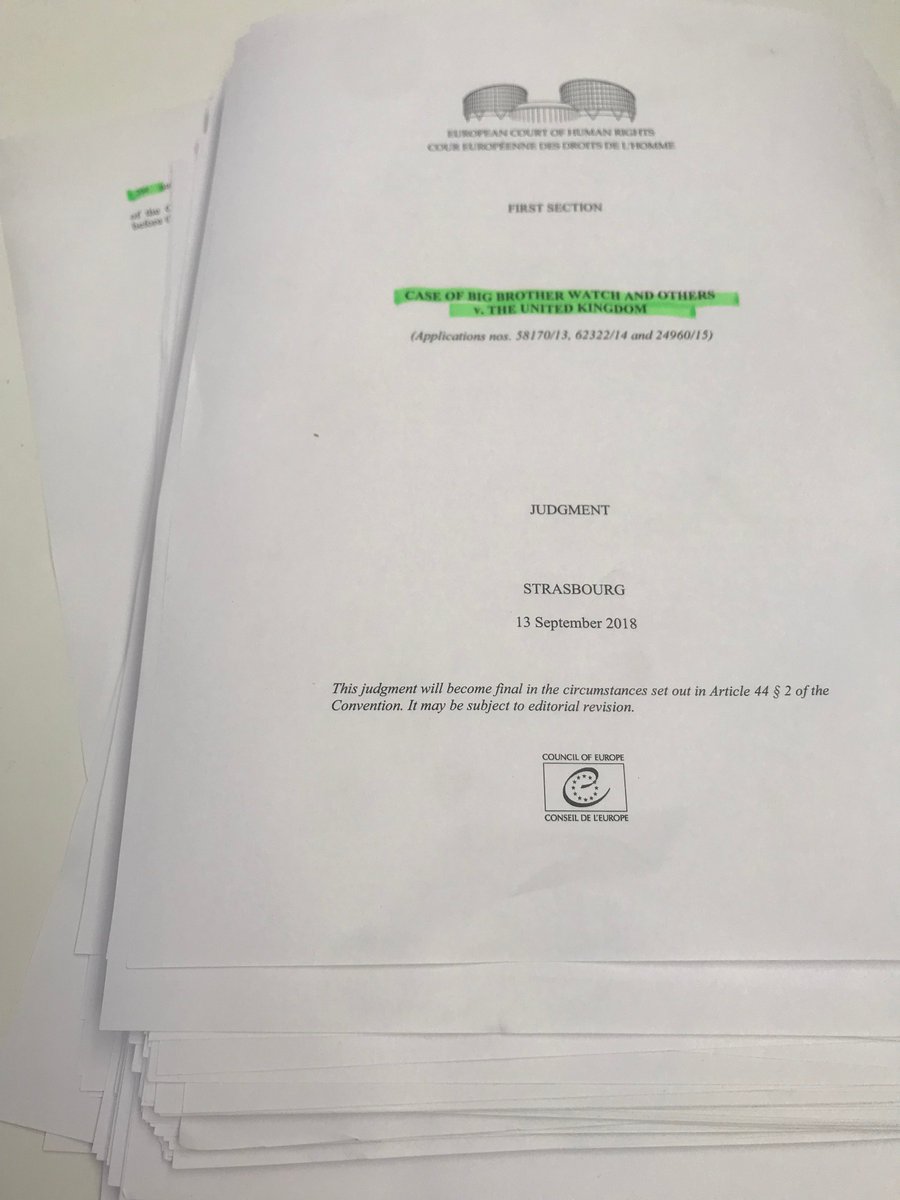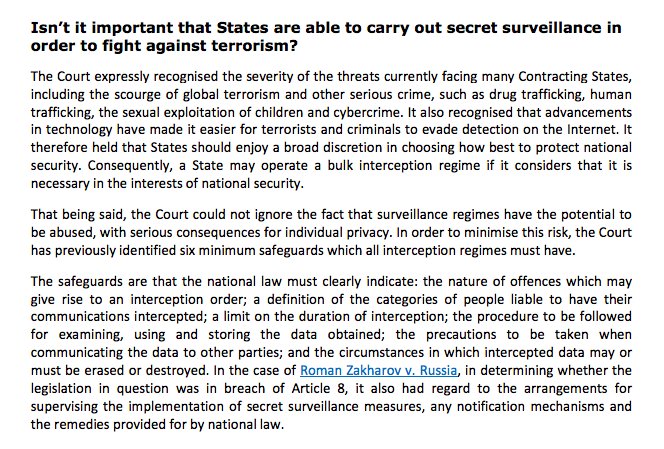In printed form it is 204 pages long and looks like this:

order to fight against terrorism?"
(Also taken from a (non-binding) Court press release, which can be found here: echr.coe.int/Documents/Pres…)

openrightsgroup.org/press/releases…
“Since we brought this case in 2013, the UK has actually increased its powers to indiscriminately surveil our communications whether or not we are suspected of any criminal activity".
According to @privacyint's counsel Caroline Wilson Palow:
"The judgment rightly recognises that collecting communications data - the who, what, and where of our communications - is as intrusive as collecting the content".
1) The nature of offences which may give rise to an interception order;
2) A definition of the categories of people liable to have their
communications intercepted;
4) The procedure to be followed
for examining, using and storing the data obtained;
5) The precautions to be taken when
communicating the data to other parties;
must be erased or destroyed.
"The UK’s laws and surveillance practices have failed" and that the ECHR has showed the government it does not have “a free hand” to spy on its citizens:
independent.co.uk/news/uk/politi…
"While some activists may expect the court to outlaw all bulk interception, the court seems to say the PRINCIPLE is okay - it's the government's PRACTICE which was illegal."
news.sky.com/story/govt-mas…
"There should at least be a clause by which authorities would have to prove that the information they hold is valuable, and if not, they would have to get rid of it.”
wired.co.uk/article/uk-mas…










